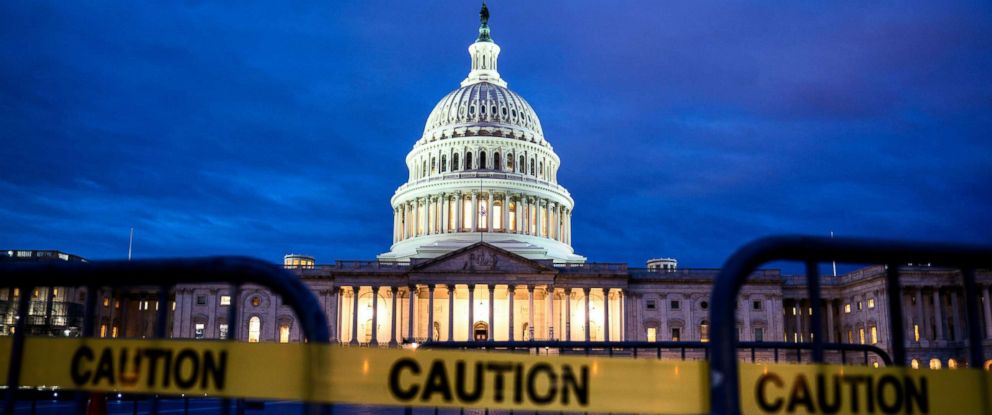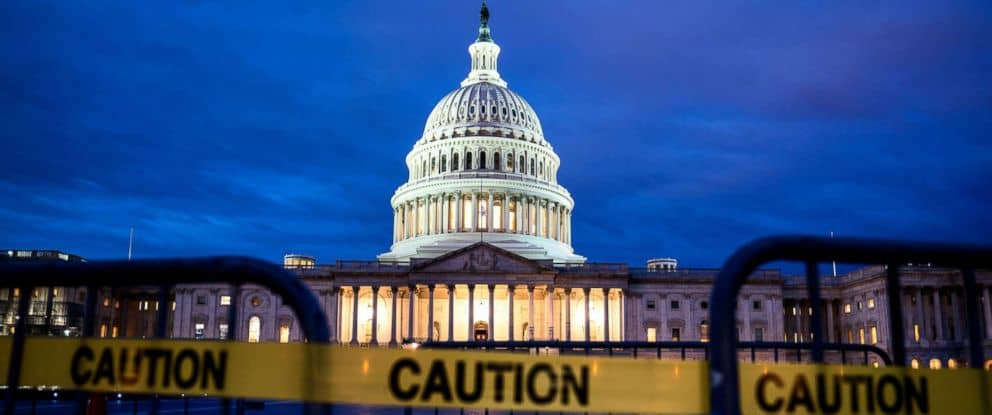
The federal government shutdown cost the economy $11 billion, according to a new analysis from the nonpartisan Congressional Budget Office, reflecting lost output from federal workers, delayed government spending and reduced demand.
The report, which was released Monday, estimated a hit of $3 billion, or 0.1 percent, to economic activity during the fourth quarter of 2018. The impact was projected to be greater during the first quarter of 2019: $8 billion, or 0.2 percent of GDP.
Although most of the damage to the economy will be reversed as federal workers return to their jobs, the CBO estimated $3 billion in economic activity is permanently lost after a quarter of the government was closed for nearly 35 days.
“Among those who experienced the largest and most direct negative effects are federal workers who faced delayed compensation and private-sector entities that lost business,” the report said. “Some of those private-sector entities will never recoup that lost income.”
The analysis does not incorporate some indirect effects of the shutdown, such as the halt in some federal permits and reduced access to loans.
However, the report suggests that businesses were beginning to postpone investment and hiring decisions as a result of the shutdown and warned that the risks were becoming “increasingly significant” as the impasse dragged on.
The CBO report was requested last week by Democratic Reps. John Yarmuth of Kentucky, chairman of the budget committee, and Tom O’Halleran of Arizona, co-chairman of the moderate Blue Dog Coalition.
“I am hopeful that we have finally reached a turning point with these mindless shutdowns, but this CBO estimate serves as a stark warning to President Trump on the consequences of using American workers as a bargaining chip,” Yarmuth said in a statement.
The CBO’s annual report also looked at the impact of the Trump administration’s trade policies on the economy. It estimates that new tariffs on imports and exports will shave an average of 0.1 percent from economic growth through 2029. It also forecast customs duties will rise from 0.2 percent of GDP in 2018 to 0.3 percent this year.
Overall, the CBO projected economic growth will slow this year to 2.3 percent, compared with the 3.1 percent rate last year, as the benefits of the new tax law begin to fade. Through 2023, growth is expected to average 1.7 percent, below the CBO’s estimate of the economy’s potential.
There was at least one silver lining in the report: the CBO pushed back its forecast for when the deficit would reach the $1 trillion milestone by two years to 2022. The new timeline is driven by lower expected spending on disaster relief.
The CBO also projected interest rates would not rise as quickly as previously forecast. Interest rate payments are estimated to be $255 billion less than projected last year.
